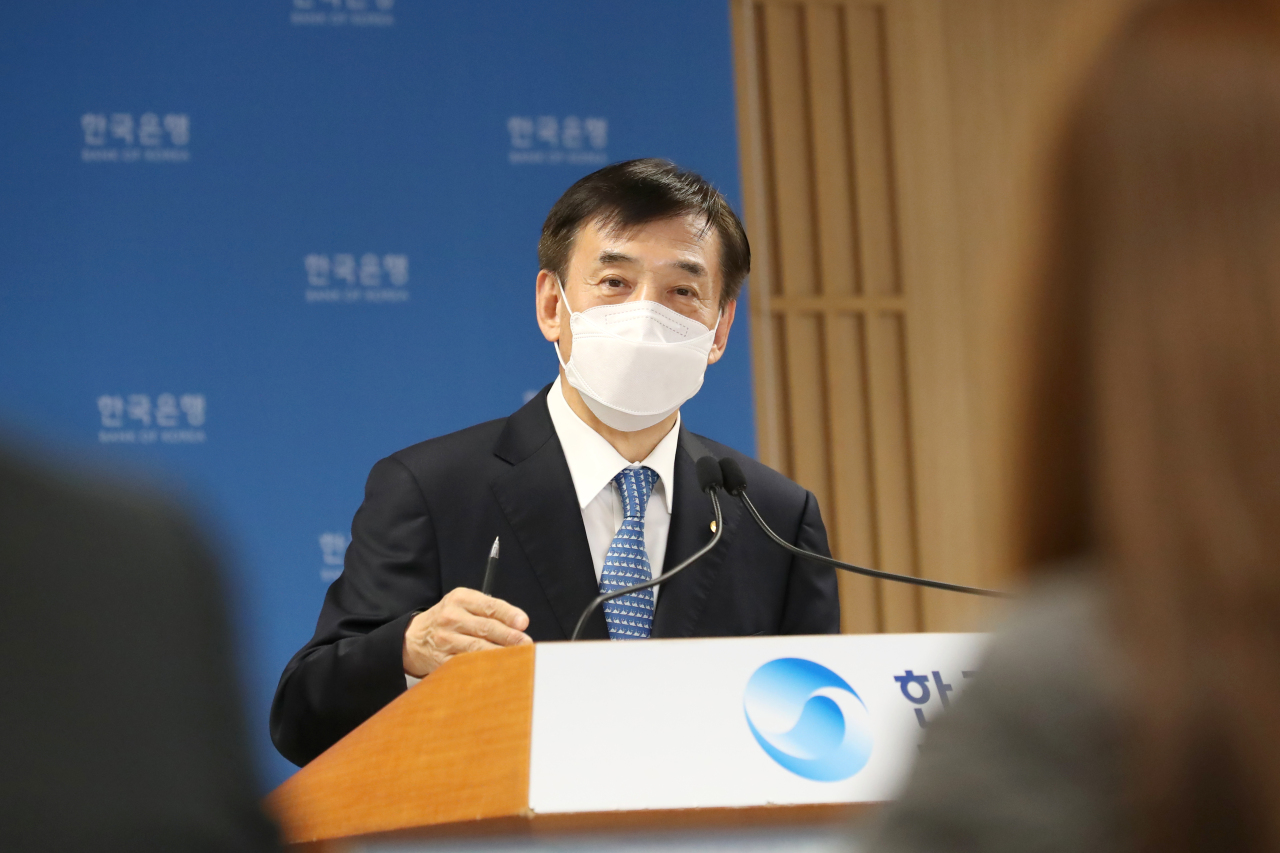
BOK Gov. Lee Ju-yeol speaks at a press briefing held at the central bank headquarters in Seoul on Thursday. (Bank of Korea)
South Korea’s central bank on Thursday decided to maintain its previous 3 percent growth outlook for the nation’s gross domestic product this year, with its chief suggesting that vaccination will determine its economic development.
Following its first monetary policy meeting of the year, the Bank of Korea decided to keep its interest-rate at a record-low of 0.5 percent, while keeping up the 3 percent growth rate for 2021. The growth rate for this year was announced in November.
It would be a steady rebound from last year’s 1 percent contraction –- the worst contraction in more than two decades -– driven by recovery in exports and capital investment, according to the BOK.
“(The latest growth outlook) is a result of a slow recovery in consumer spending, despite better-than-expected rebound of exports and capital investment here,” Bank of Korea Gov. Lee Ju-yeol said in a press briefing.
“The development of the economy will now depend on the spread of COVID-19 and how vaccination would take place,” he added.
The country plans to launch a nationwide vaccination program on Friday, starting with staff members and patients aged below 65 at infection-prone nursing homes, rehabilitation facilities and sanatoriums here.
For its decision to freeze the base rate at 0.5 percent, the BOK has repeatedly said that the financial market has been sufficiently stabilized from the risks stemming from the pandemic, preventing it from slashing it further down. The possibility that lower interest rates could add fuel to the heated housing and stock markets, apparently contributed to the rate freeze as well. The BOK has been maintaining the 0.5 percent rate since May last year.
The record-low interest rate has been one of the key factors prompting households to flock to banks for more borrowing.
The country’s household debt continued to gain momentum in January, BOK’s earlier data showed, after seeing a record on-year gain in 2020 to 988.8 trillion won ($896 billion), as of end-December.
Market watchers also said that lingering uncertainties from the COVID-19 and the US Federal Reserve’s signs to keep its interest rates near-zero have been keeping the BOK from raising its own base rate.
The consumer price inflation has been adjusted slightly upwards to 1.3 percent from the previous 1 percent with the BOK citing “the increase in global oil prices and gradual improvement in economic activity.”
But echoing US Fed Chair Jerome Powell’s remarks earlier this week, pushing back on inflation worries, Lee said that the price inflation rate within the 1 percent range “is not to be a concern.”
By Jung Min-kyung (
mkjung@heraldcorp.com)






![[Graphic News] More Koreans say they plan long-distance trips this year](http://res.heraldm.com/phpwas/restmb_idxmake.php?idx=645&simg=/content/image/2024/04/17/20240417050828_0.gif&u=)